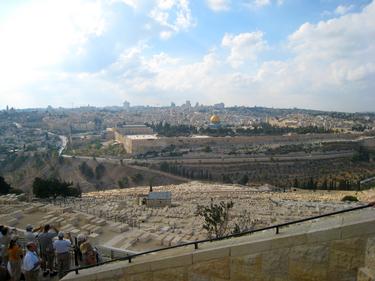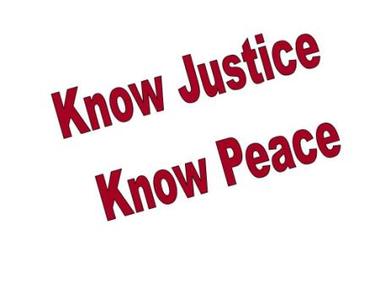When Do I Get a Break?
Are you working more and relaxing less? Doing more but never getting everything done? Running here and there but only running yourself down? Maybe it's time you took a break!
In today's world of rush here, hurry there, a haggard lament often arises with a weary sigh: "When do I get a break? I never have any time for myself. I'm up before dawn getting ready for work, commute an hour or more, work at least eight hours, commute home arriving after dark—and I'm beat."Family responsibilities add to the load. Many a mom tells the same story:
"I was up at 3 a.m. to comfort a child with an upset stomach, then got out of bed at 5 a.m. to make lunches for everyone, put a load of clothes in the washer, fix breakfast, get the children dressed and off to school, and get ready for work. I leave from work to pick up the children after school and go home. Then I take the clothes out of the washer, put them in the dryer and prepare dinner. After dinner, I do the dishes and get the children ready for bed.
"That doesn't include doing the ironing and cleaning the house. I don't have time to be exhausted, but I am. Just after midnight one of the children is having a nightmare and needs comforting. Finally I get back to bed and start the whole thing over again at 5 a.m."
Working more, relaxing less
It seems there's never time to sit back and relax—and if we do, we feel guilty. What's the answer? Life is much more than the 40 hours a week on the job. How in this complicated 21st century (filled with time-saving devices!) can a person find time to take a deep breath and just sit down? Is it possible?The calendar has Presidents' Day, Memorial Day, Independence Day, Labor Day, Thanksgiving Day and others. It seems there is a day for everything—but where is your day? Many people don't even have time for a vacation!
Sound familiar? One of the major complaints people have is about finding time for themselves or their family. Historically, after World War II, Americans had the shortest working week in the world. Now, according to Boston College professor Juliet Schor, they have the longest. Her comment is that the average American worker now puts in 200 hours per year more than in 1973.
Astonishing, isn't it? People are so desperate for some free time that, states the Center for a New American Dream, half of the work force would trade a day off for a day less pay.
All these things are complicated by the fact that as soon as a tiny break presents itself, a compulsion to fill it takes over. We immediately rush to surf the net, talk on the cell phone, play a computer game, take one of the kids to soccer and another one to tennis or something. We find it nearly impossible to sit still.
That is a part of the problem. Most people aren't comfortable unless something is going on. Society has convinced us that we should never just sit without something happening.
Sitting quietly and contemplating a beautiful sunset is almost a lost art, as is staring deeply into a crackling fire. It's sometimes joked that those who practice yoga sit and contemplate their navel. I'm not recommending that, but we do need to learn how to rest or enjoy free time without something being scheduled to fill every minute of every day.
What's the answer?
Do you need a break enough to take advantage of such a time? Do you want to hear about it? How badly do you want that break? Is it enough to trade a day of pay for a day off? Are you sure?Oddly enough, there is a time expressly made for just that. It's a time for a person to take a break—designed for all men and women, regardless of how busy their week may be.
You may be thinking, "I'm always behind and can't get everything done as it is." If that's the case, making some time for yourself isn't going to make that much difference. You'll still be behind, but you will have had a break—and maybe now you can get more done in the remaining time than you would have otherwise.
Every one of us has 24 hours in our day. We all have seven days in the week, totaling 168 hours. You might say, "And I still don't have any free time!"
Yet 24 of those 168 hours are intended specifically to give you the break for which you long. They are designed to be a special time for the whole family. Parents think of their working week, but children need a break as well. Many of them won't slow down long enough to take time for an appropriate meal. If they do, it's usually to gulp it down and rush off to something else.
Starting at the beginning
Could you handle a time to relax? What would it be worth to you?Let's start at the beginning. A supreme Creator exists who made all things, including you and me. He fully understood the mind of man and knew men and women would crowd the week with their own activities. He also knew the tendency of humanity to ignore personal health and welfare in favor of keeping busy.
So He created a day and set it apart as a rest day. He actually commanded that man take a break each week. You can read it for yourself in His instruction book for us, the Bible.
After six days of creating a wonderful world for man to dwell in (as well as creating man himself), we find that God rested from all His work. "Thus the heavens and the earth, and all the host of them, were finished. And on the seventh day God ended His work which He had done, and He rested on the seventh day from all His work which He had done. Then God blessed the seventh day and sanctified it, because in it He rested from all His work which God had created and made" (Genesis:2:1-3 [1] Thus the heavens and the earth were finished, and all the host of them.
[2] And on the seventh day God ended his work which he had made; and he rested on the seventh day from all his work which he had made.
[3] And God blessed the seventh day, and sanctified it: because that in it he had rested from all his work which God created and made.).
Did He bless it and sanctify it for His own use? The answer is a resounding no . God doesn't need to rest. This is simply telling us He ceased the work of the physical creation. Why, then, did He set apart the seventh day? He was setting us an example that we need a break from physical activity.
Jesus Christ spelled this out in Mark:2:27-28 [27] And he said unto them, The sabbath was made for man, and not man for the sabbath:
[28] Therefore the Son of man is Lord also of the sabbath.: "And He said to them, 'The Sabbath was made for man , and not man for the Sabbath. Therefore the Son of Man is also Lord of the Sabbath.'" He plainly says that the seventh day, also called the Sabbath, was made for man as a time to take a break from our everyday routine as well as a time to worship God.
There is your break. There is a 24-hour period every seven days in which you can renew your energies, both mentally and physically. Stress and overwork is a major health problem today. Hypertension results from never making the time to relax. These 24 hours were made to relieve that problem, among many others. It gives us a specific "break time" every week.
When God gave Moses the Ten Commandments , one of those commandments dealt directly with the Sabbath: "Remember the Sabbath day, to keep it holy. Six days you shall labor and do all your work, but the seventh day is the Sabbath of the LORD your God. In it you shall do no work . . ." (Exodus:20:8-10 [8] Remember the sabbath day, to keep it holy.
[9] Six days shalt thou labour, and do all thy work:
[10] But the seventh day is the sabbath of the LORD thy God: in it thou shalt not do any work, thou, nor thy son, nor thy daughter, thy manservant, nor thy maidservant, nor thy cattle, nor thy stranger that is within thy gates:).
This is not an idle comment. The day God made for man—the Sabbath, the seventh day of the week—is intended to be acknowledged by man by using the time differently from the normal workday. Most of humanity has ignored this particular commandment down through the ages.
God concerned for His creation
God the Father is a patient and loving individual. He is concerned about the welfare of His creation. He has given humanity time to accept His commands, but eventually He does run out of patience.Reread Exodus:20:9-10 [9] Six days shalt thou labour, and do all thy work:
[10] But the seventh day is the sabbath of the LORD thy God: in it thou shalt not do any work, thou, nor thy son, nor thy daughter, thy manservant, nor thy maidservant, nor thy cattle, nor thy stranger that is within thy gates:. His instruction is very specific: "Six days you shall labor and do all your work, but the seventh day is the Sabbath of the LORD your God. In it you shall do no work . . ."
The question is why? Why is it so important to take a day off from all work, regular and otherwise? If this is a day made for man, why not just do as you please? It is made for man, but it is a special time that has been set aside—hallowed—by God not only to rest but to be reminded of the Creator of all things.
Here is what He told the ancient nation of Israel: "Speak also to the children of Israel, saying, 'Surely My Sabbaths you shall keep, for it is a sign between Me and you throughout your generations, that you may know that I am the LORD who sanctifies you. You shall keep the Sabbath, therefore, for it is holy to you'" (Exodus:31:13-14 [13] Speak thou also unto the children of Israel, saying, Verily my sabbaths ye shall keep: for it is a sign between me and you throughout your generations; that ye may know that I am the LORD that doth sanctify you.
[14] Ye shall keep the sabbath therefore; for it is holy unto you: every one that defileth it shall surely be put to death: for whosoever doeth any work therein, that soul shall be cut off from among his people.).
Then in verse 17 He adds: "It is a sign between Me and the children of Israel forever; for in six days the LORD made the heavens and the earth, and on the seventh day He rested and was refreshed."
A blessing waiting for you
This statement was made to the nation God had chosen to be His special people, but it applies to all humanity. Jesus isn't just the God of the Israelites. He is the Savior of all humanity. That is clearly shown by His comment that "the Sabbath was made for man." We see it is more than only a day of rest. It also identifies the one keeping it with the Creator God who made it.In society today, people wear all manner of identifying signs or symbols. Each nation has its own flag. Some wear a jacket, shirt or hat displaying the name of their favorite team, player or political party.
This verse says that keeping the Sabbath is an identifying sign, too. The Sabbath day identifies those who wish to truly honor the Creator. It also says to all who see, "I belong to and worship the God who made all things. My loyalty is to Him above all else." It also gives a much-needed break every week.
Someone might say, "I'm just not interested in religion." He or she still needs a break, so why not use the day that was created for that purpose? It is important. The Sabbath is a break for you, and it's also a time to learn about the Father of mankind.
The truth is there are great blessings in learning to "take a break." It helps to fight stress and gives the body a chance to recuperate from the toils of the week. The pressure is off.
It gives you an opportunity to sit back and relax, and even to have the chance to watch a beautiful sunset without feeling guilty. It is an opportunity to read to the children or to simply sit and talk with them, tightening the bond of love and respect between a parent and child and their God.
You need a break. You need a time when the pressures of work are set aside. Whether you're a man, woman or child, you need a chance to take a deep breath and just relax. Now the question is, do you really want a break ? Are you willing to accept the time God made for you to have a break? It is important to you. It is important to identify yourself with the Creator of the universe.
Will you do it? Will you finally learn to "take a break"? It's in your hands. Do it! GN




